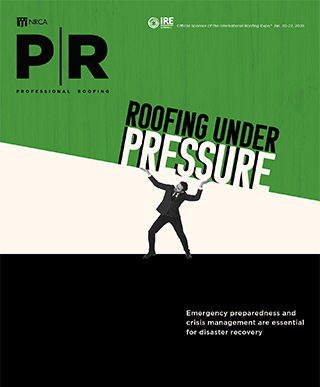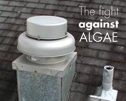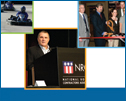When employees don't get along
Your employees are not always going to agree with one another. Following are some tips for mediating employee disputes:
- Listen closely to both sides. Try to clear your mind of distractions. Don't think ahead about what you will say, and concentrate on employees' words and nonverbal communication.
- Acknowledge the disagreement. Fighting employees may never reach an agreement, but your acknowledgement of both employees' feelings may help reduce their anger.
- Respond calmly. Even if you agree with one employee, don't attack the opposing one. Remember to criticize the idea, not the individual.
- Resolve the argument. After both employees have explained their sides, identify what is causing the disagreement. Break the problem into manageable parts, and work together with the employees to generate a solution.
Source: Adapted from The Motivational Manager, March issue
SBA warns of letter scam
In late February, the U.S. Small Business Administration (SBA) issued a scam alert to small businesses warning them not to respond to letters falsely claiming to have been sent by the SBA. The letters ask for bank account information to qualify recipients for federal tax rebates.
The fraudulent letters were sent with what appears to be SBA letterhead to small businesses throughout the U.S. They advise recipients that they may be eligible for tax rebates under the Economic Stimulus Act and that the SBA is assessing their eligibility for such a rebate. The letters ask recipients to provide the names of their banks and account numbers.
These letters have not been sent or authorized by the SBA, and the SBA has strongly advised small businesses not to respond to them. The SBA claims the letter scam is similar to e-mail scams often known as "phishing," which seek personal data and financial account information that enable another party to access an individual's bank accounts or to engage in identity theft.
The SBA is working with the SBA Office of Inspector General (OIG) to investigate the matter. The OIG has asked that anyone who receives such a letter report it to the OIG at (800) 767-0385 or oighotline@sba.gov.
Chinese drywall may be hazardous
According to the Sarasota Herald Tribune, drywall imported from China during the housing boom is suspected of being responsible for foul odors and the corrosion and failure of metal components in homes in the Sarasota, Fla., area and along both of Florida's coasts. State and federal health officials are trying to determine whether gases emitted by the drywall are hazardous to humans.
Air-conditioning evaporator coils in homes containing the drywall reportedly are corroding and failing even though the homes are only a couple of years old. Pipes and wiring also may be deteriorating.
The Sarasota County Health Department began investigating the issue in summer of 2008, and state and federal health agencies soon joined the investigation. Builders, suppliers, one manufacturer and private testing labs also are said to be involved.
Health officials suspect many builders in southwest Florida may have installed the imported Chinese drywall between 2004 and 2006 when a drywall shortage prompted some builders to look for alternative sources of the material.
"We are interested in the possible health issues here," says Bob Kallotte, a Sarasota County Health Department environmental specialist. "We have some evidence that people are experiencing symptoms as a result of this, but we have not confirmed the cause. We are taking this seriously."
What employers spend on compensation
According to the Employee Benefit Research Institute, employers spent almost $8 trillion on total compensation for employees during 2007.
Of that amount, 81.4 percent, or $6.4 trillion, was spent on wages and salaries, and 18.6 percent, or $1.5 trillion, was spent on benefits.
The institute also states employer spending on health benefits is nearing the amount spent on retirement benefits. During 2007, employers spent $623.1 billion on employee health benefits, including Medicare hospital insurance, group health insurance and military medical insurance. Employers spent $693.9 billion on retirement income benefits during 2007.
Details
Tony Freas
What is your position within your company?
I am vice president of Bob Carlson Inc. Roofing and Sheet Metal Contractors, Hillsboro, Ore.
What is the most unusual roofing project you've performed?
Eastern Oregon grain elevators
Why did you become a roofing contractor?
I was born into it.
What was your first roofing experience?
I was a kettleman on a 60-gallon Blackwell. That kettle is a barbeque today—a much better fit.
If you weren't a roofing contractor, what do you think you would be?
I would have loved to have been an orchardist.
What is a motto that you live by?
Work hard, wakeboard harder!
If you could travel anywhere in the world, where would you go?
An uninhabited private island—with my wife, of course
What three items are always in your fridge?
Cheese, pickles and Diet Coke (my wife's)
What is the most high-tech thing in your house?
I don't know its name, but I know it's in my son Jack's room.
What's your favorite book?
The Game by Neil Strauss
If you could invite any three people to dinner (dead or alive), whom would you invite and why?
Grampa Freas, who passed away when I was young; Bill Gates—I want to know how he conceived it; and my wife because if I don't, I will be in the dog house.
What are your favorite aspects of your job?
The accomplishment of finding a way to "get 'er done" in a manner that no one else considered. And, of course, everyone loves a satisfied client.
What is your roofing industry involvement?
I will be starting my three-year term as an NRCA director in June. I also am involved with our local roofing contractors association, the Associated Roofing Contractors of Oregon and SW Washington.
People would be surprised to know...
I am compassionate.
Green roof committee completes exam review
Green Roofs for Healthy Cities' (GRHC's) Accreditation Exam Development Committee has completed its final review of GRHC's Green Roof Professional (GRP) accreditation exam. The exam will be launched at the 7th Greening Rooftops for Sustainable Communities Conference, Awards and Trade Show in Atlanta June 5.
The GRP program consists of four educational courses that precede the accreditation exam: Green Roof Design 101, Green Roof Design and Implementation 201, Green Roof Waterproofing and Drainage 301, and Green Roof Plants and Growing Media 401. The program is designed to help those involved with green roof system projects identify and organize project teams; function as team leaders; understand options for green roof system design and implementation; maximize green roofs' benefits during the design process; and understand the challenges and best practices associated with green roof system design and installation.
Registration for the GRP accreditation exam can be completed at www.greenroofs.org/atlanta.
RFID tags may become more common in construction
Radio frequency identification (RFID) tags currently are used most often in the construction industry to track tools and vehicles, but according to M2M magazine, these devices may soon be used to track other construction supplies, as well.
In "RFID: A Tool for the Construction Lifecycle," M2M explains how the construction industry's increased use of prefabricated construction pieces is creating a greater need to track those pieces as they move through the construction life cycle. By placing RFID tags on prefabricated construction pieces and scanning the tags at regular intervals, information such as product location and quality can be easily accessed.
RFID tags—also called "smart chips"—already are embedded in some products commonly found in the construction industry, such as certain tools and pickup trucks. But for RFID tags to advance in the construction industry, all parties involved with a project must cooperate and contractors must learn how to use the software that manages information gathered by RFID tags.
"As we look out over the next two or three years, we are going to follow the curve in what we call smart chip technology because there really is this collection of intelligent computing that is getting put on things," says Frances Rabuck, director of the realtime asset lab for Bentley Systems, an Exton, Pa.-based infrastructure software solutions company. "In the construction industry, as we move up that curve, you will get more and more intelligence in the chips."
The entire M2M article is available at www.specialtypub.com/article.asp?article_id=7440.


